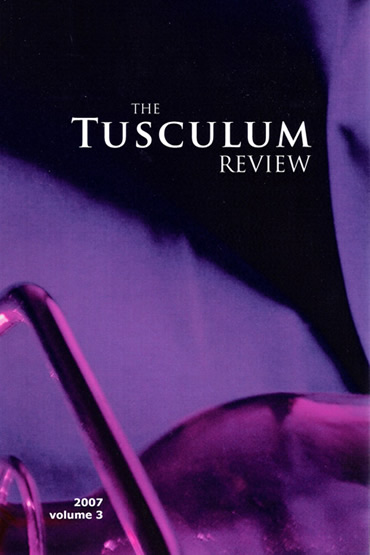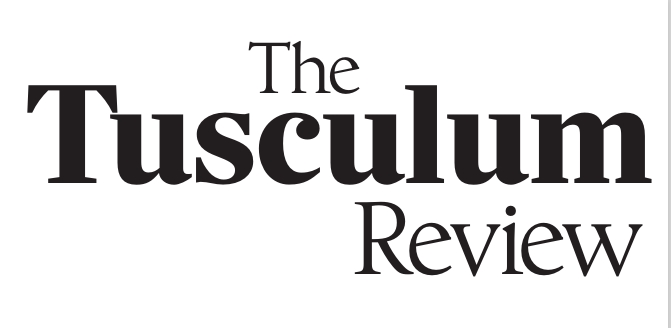
Volume 3, published in 2007, is truly international, featuring “Postcards from Mexico,” five poems by Jamie Ross in response to Guggenheim-winning photographer Antonio Turok and Clare Brett Smith’s beguiling photographs of Mexican children and companion animals. Those black-and-white images reproduce to transportive effect here.
The Tusculum Review Poetry Prize winner Ria Voros’s poems move from Budapest to Wessex to Tanzania, and her prose poem, “Walk in Laetoli,” features a Maasai guide wearing a Beatles T-shirt “stepping into the frame” of a picture of her twelve-year-old daughter: “ . . . The photograph doesn’t show how he will tap / her shoulder with his long, statesman’s fingers. It doesn’t capture / the rumble of his baritone, tongue curled around strange Eng- / lish vowels. Or how I see it suddenly: the way she will look at / her husband years later.”
The volume features other agile poets. Nicholas Reading’s “Files: Summer Work I Never Finished” begins: “The evening coordinator’s hair was grease. / The secretary was lacquer. The janitor / looked most spry of all shucking reams of paper.”
Jacques Debrot’s inventive old Hollywood mash-up, “Death-Duel Above Gotham” won the 2007 Tusculum Review Prose Prize. The stories here include Amy Zipperer’s “Zoey’s Kittens,” Marie Potoczny’s “Puffins Are Cute,” and Jeff Drye’s “A World, Opened and Shut.” The prose is light on its feet, but the tales are weighty.
There are three magnificent essays: Kirsten Eve Beachy’s historical and personal meditation on the Martyrs Mirror, a wedding registry present to her and her husband that records “1600 years of suffering by the keepers of the true faith. It details the torments endured by the Anabaptists and their predecessors all the way back to Christ, whom Mennonites and Amish consider the original Anabaptist, what with his adult baptism and refusal to bear arms. Burnings, drownings, and more creative torture fill the book.” What follows is a serious and entertaining moral and genealogical exploration.
Luciana Lopez’s “On Not Writing” details the pitched travel story she never wrote about Tiradentes, Brazil, realizing months later why.
In “Love Means Nothing,” Ethel Morgan Smith describes falling in love with the global game of tennis: playing it, watching it, examining the famous players, and eventually, being disappointed by professional commentators’ reactions to Venus and Serena Williams: “I blamed Martina when she said in Time magazine, ‘The tennis world accords the sisters special privileges because they are black.’ Martina, I took your poster off of my wall. And I know love in tennis means nothing.” The essay is a chilling reflection on attitudes toward the Williams’ sisters from the tennis establishment, several years before Claudia Rankine explored them in Citizen: An American Lyric.
The marvelous Roy Sorrels’ “Gone” is a “one-character wide-awake nightmare in one act” that tracks a man without memory moving through town, missing first his mailbox key, then his sock, apartment building, workplace, and glass of water. The play is more chilling than a drink clinking with excess ice.
There’s too much beauty here to describe it all. Volume 3, edited by Wayne Thomas and Richard Greenfield, is a memorable one, filled with work that still resonates.
Drama
Roy Sorrels
Fiction
Whit Coppedge
Jacques Debrot
Jeff Drye
Anthony Kane Evans
Michael Leone
Alison Miller
Gary Norris
Marie Potoczny
Matt VanderMeulen
Shellie Zacharia
Amy Zipperer
Nonfiction
Kirsten Eve Beachy
Luciana Lopez
Ethel Morgan Smith
Poetry
Ian Ganassi
Michael Hardin
Melanie Jordan
Jeanne Lesinski
David Macauley
Christopher Mulrooney
Jan Petit
Nicholas Reading
Talia Reed
Jamie Ross
Minal K. Singh
Matthew J. Spireng
Catherine Strisik
Robert Strong
Davide Trame
Ria Voros
Laura Lee Washburn
Amy Wright
Photography
Antonio Turok
Clare Brett Smith
